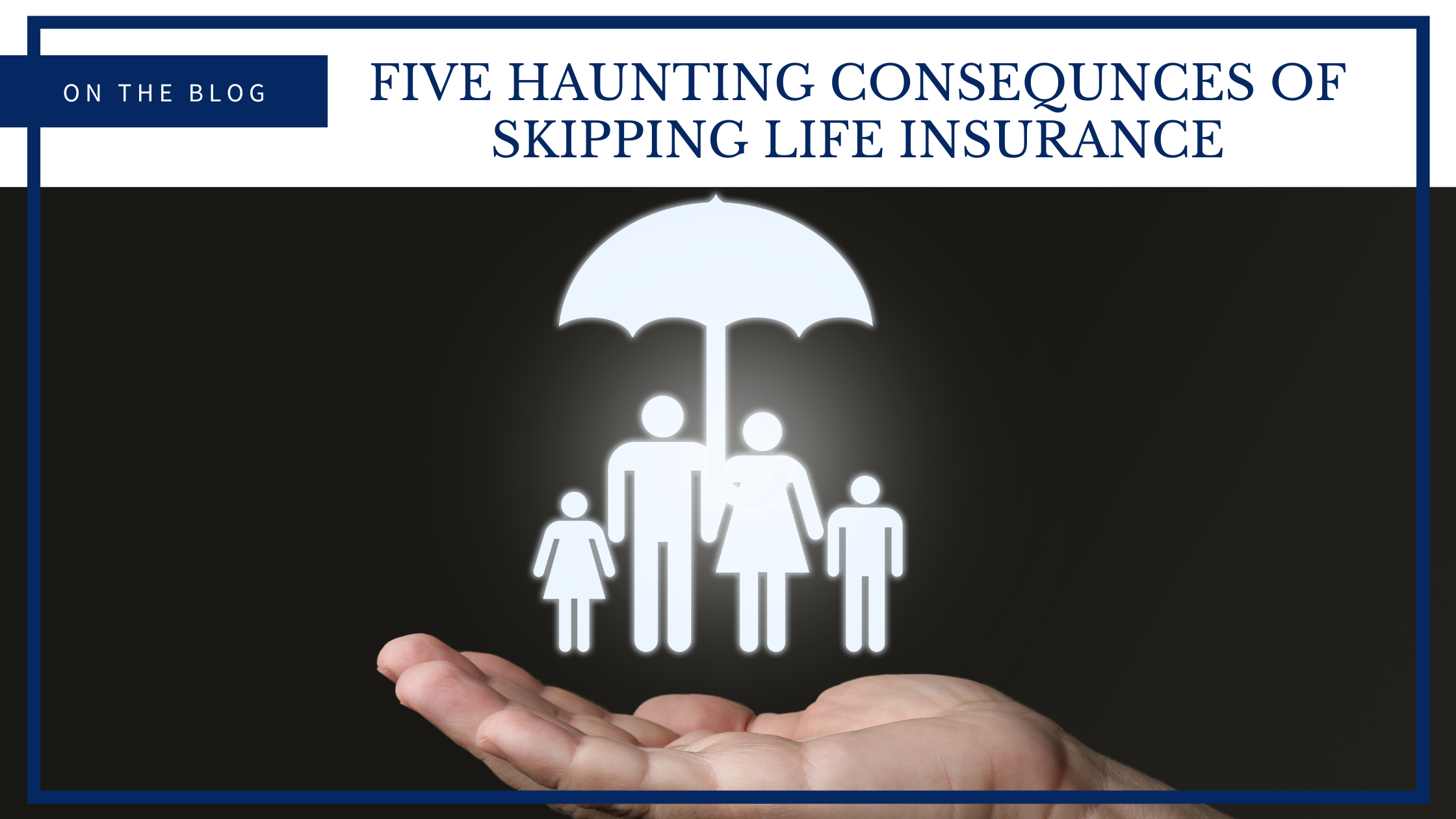October is known for its spooky stories, but the scariest stories in real life are those that foretell one’s death and a worrying possible future for those who are left behind. Fortunately, there are steps that you can take now to protect yourself and your loved ones from some of those possibilities. Consider the five scary situations below and know that life insurance can help alleviate the fears associated with each of them.
Your loved ones have to pay for your funeral.
End-of-life services aren’t cheap. Not only does it cost money to prepare a body for burial or cremation, the burial or cremation services cost money, and a funeral, viewing, and/or wake will cost money as well. Further, these costs all occur very shortly after death, meaning that without cash on hand, it could be hard for your family to find the funding they need. Fortunately, life insurance companies may release a portion of the death benefit upon notification of death exactly for this purpose – so that the beneficiaries of the policy have access to the funds they need to address immediate expenses.
Whether you choose a final expense life insurance policy (meaning that it is solely intended to pay for your end-of-life expenses) or a traditional policy with a larger death benefit, you can protect your loved ones from the financial worries that come with planning services – and the credit card debt that could stem from having to self-fund them.
The debt piles up.
The death benefit that is provided to your life insurance beneficiaries after your passing can certainly act as a nest egg for the next generation, but it can also help your loved ones tackle any debt that you may leave behind. Most debt does not get forgiven upon death, meaning that someone is still liable for making your car payments, paying your credit card bills, and making final utility payments. You may provide for this in your estate, but life insurance can provide additional funds for those larger forms of debt that may be in your name – saving your family members from having to find the funds themselves.
It’s unclear how to proceed.
Life insurance is one of many things that need to be in good order to help your family finalize your estate after your death. All of your files should be stored in a safe place (and you should let you family know where that is) so that they have easy access to them when the time arises. In addition to life insurance policies, you may want to share your Last Will and Testament; any trust documents; and information about your bank accounts, retirement accounts, and other financial accounts. Keep a list of usernames and passwords so that your family can get access to pay your bills, taxes, and more. If you don’t have this type of file prepared, sorting through bills and accounts can be challenging. Grief is already stressful enough; there’s no need to add more work for your loved ones on top of what they’re already feeling.
The loss of opportunities.
If your income was used to support your kids or grandkids through college or private school, a lapse in that stability could mean that they have to make some tough decisions about continuing their enrollment. Life insurance proceeds can be used to pay for education or keep promises that you made while still alive. If you own a business, the turmoil caused by your passing could lead to it closing its doors. However, a life insurance policy could give your loved ones (or business partner) the time they need to figure out how to keep the business running.
They’ll lose a future safety net.
After a death, people may be surprised to know that the deceased’s expenses don’t immediately come to a halt. There’s the funeral to consider, prepping a home for sale – which may involve maintenance – and routine bills (like cell phone, car insurance, and utilities) keep rolling in. The buildup of all of the financial considerations on top of their grief can leave people scrambling. Families without a life insurance payout to rely on may dip into their own retirement savings or emergency funds to bridge the gap. A life insurance policy can keep your family from reaching into their future pockets to handle your present costs – saving them money and helping them maintain their own standard of living through the grieving period and after.
You can avoid these scary situations by ensuring you have an in-force life insurance policy to provide a safety net to your loved ones. Talk to a sales representative at Navy Mutual about your family and your needs to create a future in which your family will feel safe.
Sponsor
This article is sponsored by Navy Mutual. Protect your family and your future. Navy Mutual provides affordable life insurance and annuities to those who have answered our nation’s call. If you are active duty, in the reserve or guard, or retired from any branch of the United States military or uniformed services, we’d be honored to serve you. Click here for a quote from Navy Mutual today!
About the Author
Aj Smit is the author of the book Red Thread: Weaving an Embodied Life of Joy, speaker, glitter enthusiast, and professional weaver of Joy. She is a military spouse in S. Korea with a pup and houseplants galore. Aj has led various Red Tents, retreats, and workshops internationally over the last ten years to help others discover how to weave creativity and curiosity into their lives. You can find her on Facebook and Instagram at @TheJoyWeaver and TheJoyWeaver.com.


